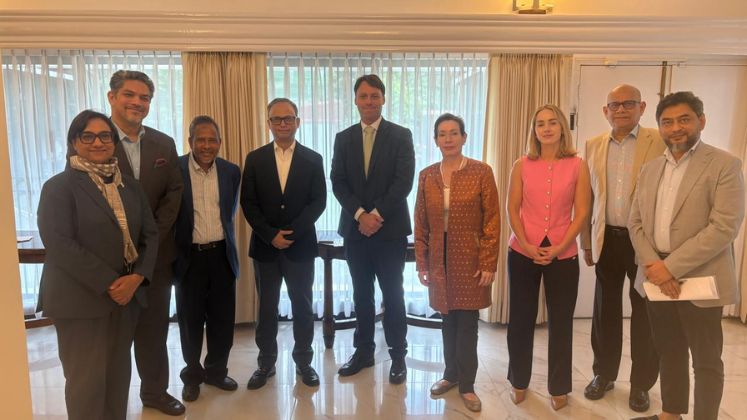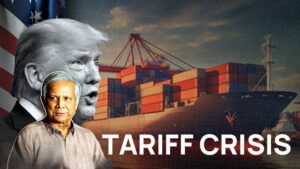
A recent visit by United States Trade Representative (USTR) officials has revealed that Bangladeshi exports to the US could benefit from reduced tariffs if they incorporate more than 20% raw materials sourced from the United States. The delegation emphasized that this potential tariff cut would apply solely to the portion of the product containing US raw materials.
During a meeting with the Bangladesh Garment Manufacturers and Exporters Association (BGMEA) held on Monday in Dhaka, Assistant USTR Brendan Lynch explained that efforts are currently underway to establish a system to verify and trace the origin of raw materials used in Bangladeshi exports. The US delegation indicated that US customs authorities are actively working on the framework to ensure transparency and traceability in this regard.
A press release from BGMEA highlighted that, under the US executive order, garments from Bangladesh containing over 20% US raw materials could see a proportional waiver on the additional 20% tariff currently imposed. The industry representatives inquired about the criteria and process that will be used to evaluate the use of US raw materials and ensure proper traceability.
In response, the US delegation assured that US customs officials are focused on resolving these issues, with a timeline expected to be announced soon. Additionally, the delegation underscored the importance of aligning Bangladesh’s labor laws with International Labour Organization (ILO) standards, suggesting amendments to the existing Bangladesh Labour Act of 2006.
Notably, in August, the US had reduced Bangladesh’s reciprocal tariff rate from 35% to 20%. Despite this, BGMEA reports that the overall tariff on Bangladeshi garments in the US remains approximately 36.5%, prompting calls for further reductions. BGMEA President Mahmud Hasan Khan Babu appreciated the progress but emphasized the need for continued efforts to lower tariffs further. He suggested that adopting a ‘stacking method’ which considers tariffs across multiple product categories, could help reduce the overall tariff burden and improve competitiveness.
During the discussions, BGMEA also reiterated their stance on labor law reforms, advocating for amendments aligned with ILO guidelines. The US trade delegation expressed satisfaction with the ongoing reforms and conveyed optimism about increasing US imports from Bangladesh, which could help reduce the trade deficit and lead to further tariff reductions.
The meeting, organized by the US Embassy in Dhaka, took place at the Chief of Mission’s Residence in Gulshan and marked a positive step towards enhancing trade relations and addressing key issues faced by Bangladesh’s garment sector in the US market.






